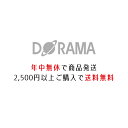奇跡のモリンガ、いよいよ発売です。
Isothiocyanate-enriched moringa seed extract alleviates ulcerative colitis symptoms in mice.
Abstract
Moringa (Moringa oleifera Lam.) seed extract (MSE) has anti-inflammatory and antioxidant activities. We investigated the effects of MSE enriched in moringa isothiocyanate-1 (MIC-1), its putative bioactive, on ulcerative colitis (UC) and its anti-inflammatory/antioxidant mechanism likely mediated through Nrf2-signaling pathway. Dextran sulfate sodium (DSS)-induced acute (n = 8/group; 3% DSS for 5 d) and chronic (n = 6/group; cyclic rotations of 2.5% DSS/water for 30 d) UC was induced in mice that were assigned to 4 experimental groups: healthy control (water/vehicle), disease control (DSS/vehicle), MSE treatment (DSS/MSE), or 5-aminosalicyic acid (5-ASA) treatment (positive control; DSS/5-ASA). Following UC induction, water (vehicle), 150 mg/kg MSE, or 50 mg/kg 5-ASA were orally administered for 1 or 2 wks. Disease activity index (DAI), spleen/colon sizes, and colonic histopathology were measured. From colon and/or fecal samples, pro-inflammatory biomarkers, tight-junction proteins, and Nrf2-mediated enzymes were analyzed at protein and/or gene expression levels. Compared to disease control, MSE decreased DAI scores, and showed an increase in colon lengths and decrease in colon weight/length ratios in both UC models. MSE also reduced colonic inflammation/damage and histopathological scores (modestly) in acute UC. MSE decreased colonic secretions of pro-inflammatory keratinocyte-derived cytokine (KC), tumor necrosis factor (TNF)-α, nitric oxide (NO), and myeloperoxidase (MPO) in acute and chronic UC; reduced fecal lipocalin-2 in acute UC; downregulated gene expression of pro-inflammatory interleukin (IL)-1, IL-6, TNF-α, and inducible nitric oxide synthase (iNOS) in acute UC; upregulated expression of claudin-1 and ZO-1 in acute and chronic UC; and upregulated GSTP1, an Nrf2-mediated phase II detoxifying enzyme, in chronic UC. MSE was effective in mitigating UC symptoms and reducing UC-induced colonic pathologies, likely by suppressing pro-inflammatory biomarkers and increasing tight-junction proteins. This effect is consistent with Nrf2-mediated anti-inflammatory/antioxidant signaling pathway documented for other isothiocyanates similar to MIC-1. Therefore, MSE, enriched with MIC-1, may be useful in prevention and treatment of UC.
Potential of Moringa oleifera root and Citrus sinensis fruit rind extracts in the treatment of ulcerative colitis in mice.
Abstract
CONTEXT:
The plant Moringa oleifera Lam (Moringaceae), commonly known as the drumstick tree, is an indigenous species in India. This species has been of interest to researchers because traditionally its roots are reported in the treatment of ulcerative colitis (UC). Traditionally it is reported that Citrus sinensis Linn (Rutaceae) fruit rind when combined with M. oleifera will increase the efficacy of the plant in the treatment of UC.
OBJECTIVE:
The present work was undertaken to determine the effectiveness of M. oleifera root alone and in combination with C. sinensis fruit rind in the treatment of UC.
MATERIALS AND METHODS:
Ethanol and aqueous extracts of M. oleifera roots (100 and 200 mg/kg, body weight) were screened alone and in equal combination with ethanol extract of C. sinensis fruit rind, i.e., 50 mg/kg each of C. sinensis and M. oleifera for their activity on acetic acid-induced UC in mice.
RESULTS:
Treatment with combination of extracts of M. oleifera root and C. sinensis fruit rind (50 mg/kg, each) showed less ulceration and hyperemia than individual extract (200 mg/kg) in histopathological observation. Acetic acid increased myeloperoxidase (MPO) level in blood and colon tissue to 342 U/mL and 384 U/mg, respectively. Combination of ethanol extract of M. oleifera root with C. sinensis fruit rind extract significantly (p<0.05) decreased MPO in blood and tissue to 278 U/mL and 291 U/mg, respectively. MPO in blood and tissue in control group was 85 ± 1.2 U/mL and 96 ± 1.3 U/mg, respectively. Similarly this combination significantly reduced malondialdehyde (MDA) level in blood and tissue to 7.11 nmol/mL and 8.19 nmol/mg, from 11.20 nmol/mL and 13.20 nmol/mg, respectively. MDA in blood and tissue in control group was 2.76 ± 1.2 nmol/mL and 3.76 ± 1.2 nmol/mg, respectively.
DISCUSSION AND CONCLUSION:
Results show that a combination of M. oleifera root extracts with C. sinensis fruit rind extract is effective in the treatment of UC and results are comparable with the standard drug prednisolone.



![奇跡のモリンガ [ 大山 知春 ]](https://thumbnail.image.rakuten.co.jp/@0_mall/book/cabinet/noimage_01.gif?_ex=128x128)
